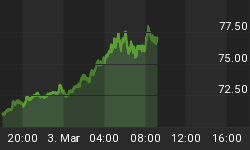Why have bond yields moved so violently upward this past week? Well, yes, some of the data last week were stronger than expected. But come on, May nonfarm payrolls increasing 157,000, getting a boost from 203,000 assumed (birth/death adjustment) workers being added to unadjusted payrolls, and coming on the heels of an 80,000 increase in April is hardly the stuff of the bond market massacre we have witnessed this week. Central banks around the world raising rates? This is nothing new. And with all due respect to the honorable Reserve Bank of New Zealand, I don't think that a central bank of an economy with a lower GDP than that of Chicago (I'm guessing here), could cause such a stir in the U.S. bond market. Inflation? Last time I looked, inflation was moderating - with or without food and energy. Shift in Fed policy expectations? Yes, two Street firms through in the towel on 2007 Fed rate cuts this week, but they were hold-outs. (Now it is just me and a few other diehards). No, for credible explanation of the exaggerated move in bond yields this week, I think it is Wall Street Journal columnist, Justin Lahart, who has put his finger on it ("Mortgage Jitters May Account For Bond Selloff"). When bond yields started creeping up a few weeks ago, mortgage portfolio prepayment risk started creeping down. This meant that the massive amount of mortgages in portfolios needed fewer non-callable Treasuries as duration maintainers. I am not saying that something perceived to be fundamental by bond investors has not changed. But what Lahart is saying is that the massive duration hedging required by mortgage portfolios acts as a supercharger to fundamentally-induced changes in yields. Remember 1994?
I will, however, add one fundamental factor that may have played a smaller role in this week's bond market selloff - foreign official holdings of U.S. Treasury and Agency securities. As the chart below shows, in the week ended Wednesday, June 6, there was a relatively large $12.5 billion reduction in these custody holdings.
Chart 1
















